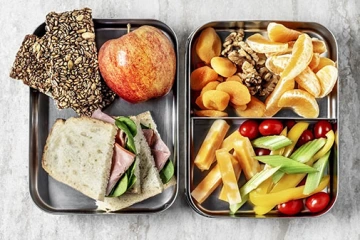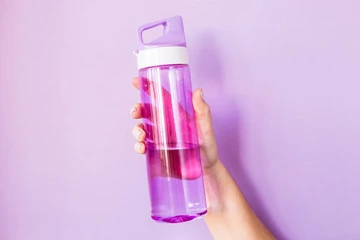7 Strategies for Staying Healthy in College
With college freshman orientations right around the corner, you can start your academic career on the right foot by following these simple lifestyle tips.

With college freshman orientations right around the corner, you can start your academic career on the right foot by following these simple lifestyle tips. If you are new to Southern Arizona, be sure to read to the end to receive some additional tips for enjoying a safe and healthy school year at the University of Arizona (UA).
A good night’s sleep
You might have heard the “joke” that college is a time for studying, socializing and sleeping — but students only get to pick two. Many students sacrifice sleep, which could be detrimental to every other aspect of their lives. You can practice effective sleep hygiene by following a regular sleep schedule, staying away from caffeinated beverages in the afternoon and exercising regularly. Take about an hour to wind down before bedtime — and avoid screens, such as televisions, laptops and smartphones during this time.

Eating a healthful diet can help you feel better, cope with stress and perform better in the classroom and on the athletic field.
The average college student often is pressed for time, under a lot of stress and eating on the run. You may find it difficult to avoid bad habits such as skipping meals or visiting fast food restaurants. However, eating a healthful diet can help you feel better, cope with stress and perform better in the classroom and on the athletic field. Always opt for water instead of soda, energy drinks and other sugary beverages. Keep nutritious snacks, like nuts, fruit and plain popcorn, in your dorm room. Aim for three meals a day. Know what your college dining services have to offer, as well as other food options provided by your school. The UA Student Unions offers many healthful food options, as well as several programs tailored to specific dietary needs. They also have a Campus Pantry, which helps students, faculty and staff in need of food assistance due to financial and other reasons.

Whether they are in the desert or on campus, cactus spines can hurt. It’s always best to keep your distance.
UA Campus Health offers medical care, counseling services and a pharmacy, making it a one-stop shop for your health-care needs. Get that sore throat checked out, get a flu shot or pick up a prescription. In addition, many first-year and transfer students have a difficult time adjusting to the stress of academic life, or the newfound independence of adulthood, so make sure you are paying attention to your mental health.
Condoms and emergency contraception
While you are at Campus Health, you can pick up condoms and emergency contraception. Anyone who is sexually active — or considering it — can help protect themselves and their partners from sexually transmitted infections or unintended pregnancies by keeping a stash of condoms at the ready. Anyone at risk of becoming pregnant or causing a pregnancy can supplement the condom supply with emergency contraception – the “morning-after pill.” Plan B One-Step, a popular brand of emergency contraception, can be taken within 72 hours of unprotected intercourse (including birth control failure, for example, if the condom breaks). You also can discuss more effective birth control methods with a health-care provider.

it also can lead to skin cancers, like melanoma and basal cell carcinoma.
Classes are starting and in Southern Arizona, it’s hot in August! And the sun isn’t only blasting us with heat — it’s also dosing us with ultraviolet (UV) radiation, which means you need to be serious about protecting your skin. UV exposure not only causes sunburns and premature aging; it also can lead to skin cancers, like melanoma and basal cell carcinoma. Reduce your risk by reducing your exposure: Cover skin with UV-protective clothing, sunglasses and a hat, and cover exposed skin with sunscreen that is at least SPF 30 and reapply every 90 minutes. Gravitate toward the shade, especially between the hours of 10 a.m. and 4 p.m., when UV rays are most intense.
Water
It is important to stay hydrated in hot, dry places like Tucson. Newcomers often fail to realize how much water they actually need, but locals are lugging water bottles around everywhere for a reason. Dehydration can sneak up on you, because when the temperature is above 95 degrees with low humidity, and you are not getting enough water, you won’t sweat — and therefore might not “feel” like you’re overheating. Don’t be fooled!
A healthy respect for cactuses

Drinking fluids is crucial to staying healthy and maintaining the function of every system in your body, including your heart, brain, and muscles.
About the Author
The University of Arizona Health Sciences is the statewide leader in biomedical research and health professions training. The UArizona Health Sciences includes the UArizona Colleges of Medicine (Phoenix and Tucson), Nursing, Pharmacy, and Mel and Enid Zuckerman College of Public Health, with main campus locations in Tucson and the growing Phoenix Biomedical Campus in downtown Phoenix.

